Text
31K notes
·
View notes
Link
Hail, hail, the gang’s all here! To inspire frustration & laugh at fear! Goblins who meddle and goblins who bite, Goblins so tricksome and goblins who fight My game is updated, its tweaks now I flaunt: It’s a little more thoughtful and pay what you want!
24 notes
·
View notes
Text
There’s also a large grey area between an Offensive Stereotype and “thing that can be misconstrued as a stereotype if one uses a particularly reductive lens of interpretation that the text itself is not endorsing”, and while I believe that creators should hold some level of responsibility to look out for potential unfortunate optics on their work, intentional or not, I also do think that placing the entire onus of trying to anticipate every single bad angle someone somewhere might take when reading the text upon the shoulders of the writers – instead of giving in that there should be also a level of responsibility on the part of the audience not to project whatever biases they might carry onto the text – is the kind of thing that will only end up reducing the range of stories that can be told about marginalized people.
A japanese-american Beth Harmon would be pidgeonholed as another nerdy asian stock character. Baby Driver with a black lead would be accused of perpetuating stereotypes about black youth and crime. Phantom Of The Opera with a female Phantom would be accused of playing into the predatory lesbian stereotype. Romeo & Juliet with a gay couple would be accused of pulling the bury your gays trope – and no, you can’t just rewrite it into having a happy ending, the final tragedy of the tale is the rock onto which the entire central thesis statement of the play stands on. Remove that one element and you change the whole point of the story from a “look at what senseless hatred does to our youth” cautionary tale to a “love conquers all” inspiration piece, and it may not be the story the author wants to tell.
Sometimes, in order for a given story to function (and keep in mind, by function I don’t mean just logistically, but also thematically) it is necessary that your protagonist has specific personality traits that will play out in significant ways in the story. Or that they come from a specific background that will be an important element to the narrative. Or that they go through a particular experience that will consist on crucial plot point. All those narrative tools and building blocks are considered to be completely harmless and neutral when telling stories about straight/white people but, when applied to marginalized characters, it can be difficult to navigate them as, depending on the type of story you might want to tell, you may be steering dangerously close to falling into Unfortunate Implications™. And trying to find alternatives as to avoid falling into potentially iffy subtext is not always easy, as, depending on how central the “problematic” element to your plot, it could alter the very foundation of the story you’re trying to tell beyond recognition. See the point above about Romeo & Juliet.
Like, I once saw a woman a gringa obviously accuse the movie Knives Out of racism because the one latina character in the otherwise consistently white and wealthy cast is the nurse, when everyone who watched the movie with their eyes and not their ass can see that the entire tension of the plot hinges upon not only the power imbalance between Martha and the Thrombeys, but also on her isolation as the one latina immigrant navigating a world of white rich people. I’ve seen people paint Rosa Diaz as an example of the Hothead Latina stereotype, when Rosa was originally written as a white woman (named Megan) and only turned latina later when Stephanie Beatriz was cast – and it’s not like they could write out Rosa’s anger issues to avoid bad optics when it is such a defining trait of her character. I’ve seen people say Mulholland Drive is a lesbophobic movie when its story couldn’t even exist in first place if the fatally toxic lesbian relationship that moves the plot was healthy, or if it was straight.
That’s not to say we can’t ever question the larger patterns in stories about certain demographics, or not draw lines between artistic liberty and social responsibility, and much less that I know where such lines should be drawn. I made this post precisely to raise a discussion, not to silence people. But one thing I think it’s important to keep in mind in such discussions is that stereotypes, after all, are all about oversimplification. It is more productive, I believe, to evaluate the quality of the representation in any given piece of fiction by looking first into how much its minority characters are a) deep, complex, well-rounded, b) treated with care by the narrative, with plenty of focus and insight into their inner life, and c) a character in their own right that can carry their own storyline and doesn’t just exist to prop up other character’s stories. And only then, yes, look into their particular characterization, but without ever overlooking aspects such as the context and how nuanced such characterization is handled. Much like we’ve moved on from the simplistic mindset that a good female character is necessarily one that punches good otherwise she’s useless, I really do believe that it is time for us to move on from the the idea that there’s a one-size-fits-all model of good representation and start looking into the core of representation issues (meaning: how painfully flat it is, not to mention scarce) rather than the window dressing.
I know I am starting to sound like a broken record here, but it feels that being a latina author writing about latine characters is a losing game, when there’s extra pressure on minority authors to avoid ~problematic~ optics in their work on the basis of the “you should know better” argument. And this “lower common denominator” approach to representation, that bars people from exploring otherwise interesting and meaningful concepts in stories because the most narrow minded people in the audience will get their biases confirmed, in many ways, sounds like a new form of respectability politics. Why, if it was gringos that created and imposed those stereotypes onto my ethnicity, why it should be my responsibility as a latina creator to dispel such stereotypes by curbing my artistic expression? Instead of asking of them to take responsibility for the lenses and biases they bring onto the text? Why is it too much to ask from people to wrap their minds about the ridiculously basic concept that no story they consume about a marginalized person should be taken as a blanket representation of their entire community?
It’s ridiculous. Gringos at some point came up with the idea that latinos are all naturally inclined to crime, so now I, a latina who loves heist movies, can’t write a latino character who’s a cool car thief. Gentiles created antisemitic propaganda claiming that the jews are all blood drinking monsters, so now jewish authors who love vampires can’t write jewish vampires. Straights made up the idea that lesbian relationships tend to be unhealthy, so now sapphics who are into Brontë-ish gothic romance don’t get to read this type of story with lesbian protagonists. I want to scream.
And at the end of the day it all boils down to how people see marginalized characters as Representation™ first and narrative tools created to tell good stories later, if at all. White/straight characters get to be evaluated on how entertaining and tridimensional they are, whereas minority characters get to be evaluated on how well they’d fit into an after school special. Fuck this shit.
76K notes
·
View notes
Link
While other projects have got my head scattered all over the joint, I was made aware that it was Goblin Week last week.
I only figured it out on Wednesday night/Thursday morning, and not long into it I had a thought:
I’ll make my own dang Goblin Week.
So from that night to… well, now, I’ve been working on making a game of various flavors of goblin joining forces to inflict cosmic levels of Frustration on as many bigfolk as they can put into their sights.
It’s pay-what-you-want because I’ve only had a week to make it and a decent amount of that was backtracking and putting together playbook sheets and junk on top of the actual design.
Give it a go!
Or don’t! I don’t run your life!
37 notes
·
View notes
Text
baffling how much of this site is just conservative protestantism with a gay hat
149K notes
·
View notes
Note
I’m 48, going on 49, and honestly not less of a gremlin than when I was 20.
There’s a lot more people than you’d think out there who are older. Just relax and breathe, nothing needs to change. The mid twenties is a scary place because it seems that you have to give up what you love in order to be an adult, but that’s an outright lie.
I am turning 24 soon and I can't help but freak out. I know what I am about to say next is going to sound very trivial compared to what is happening around the world now but I can't stop thinking that there will come a time when I would be considered too old to be in a fandom. Like what would happen when I turn 35/45/55?? Won't it be awkward? Would it be creepy if I still read ao3 fics in my 60s? I don't want to go away from the fandom space. It helps me so much to cope in this world.
my advice is to block and mute anyone who makes you feel that way and enjoy posting about batman with the other well-adjusted adults who like to enjoy things on the internet
16K notes
·
View notes
Photo

I love this one lobster shirt and there is only one boy who could pull it off.
293 notes
·
View notes
Text
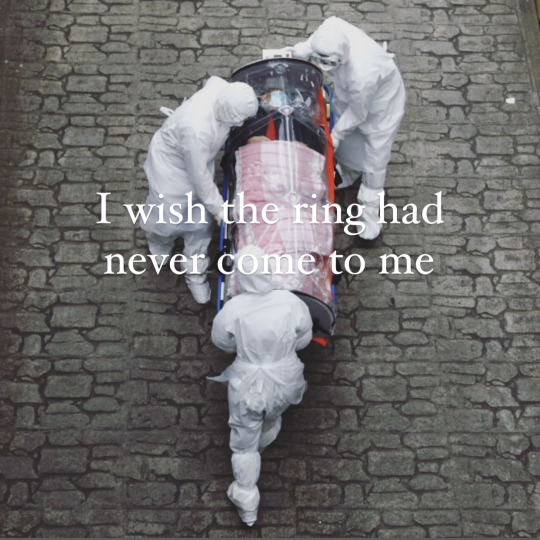
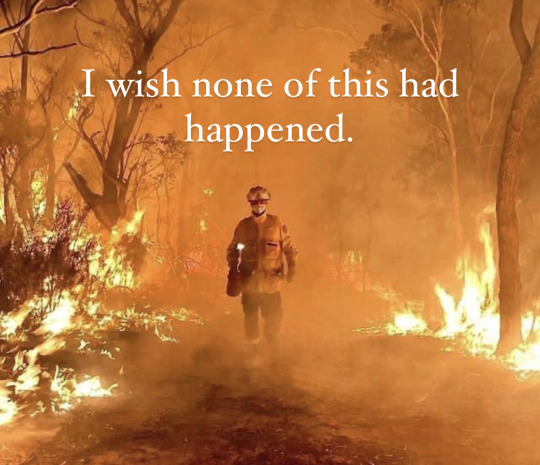
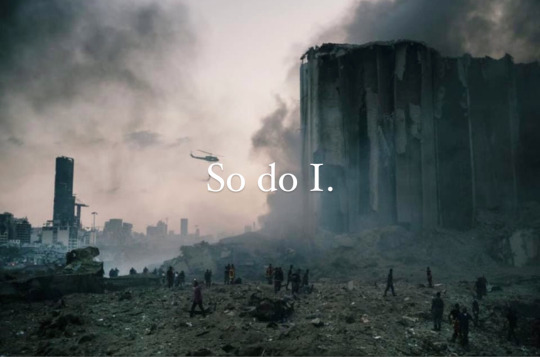
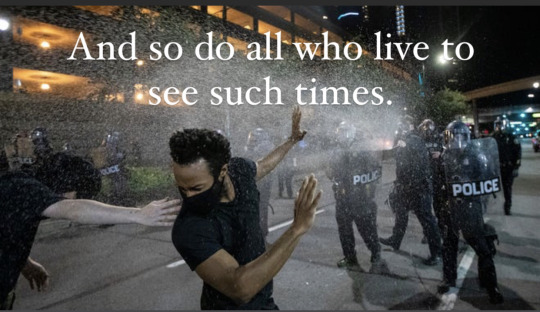
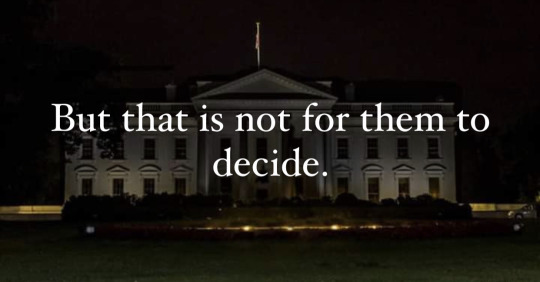
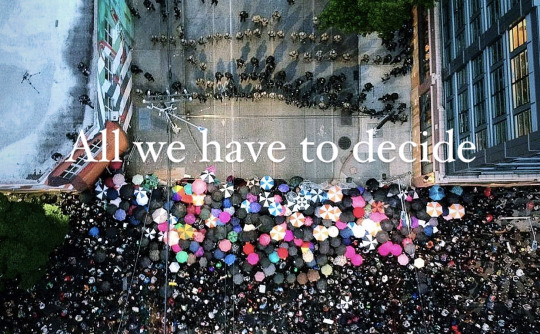
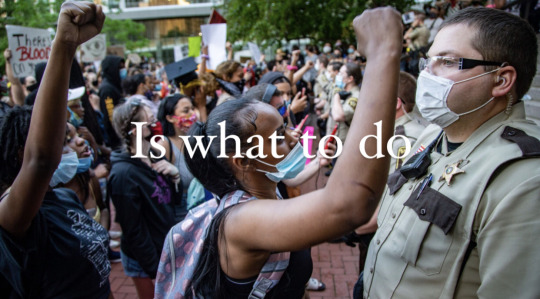
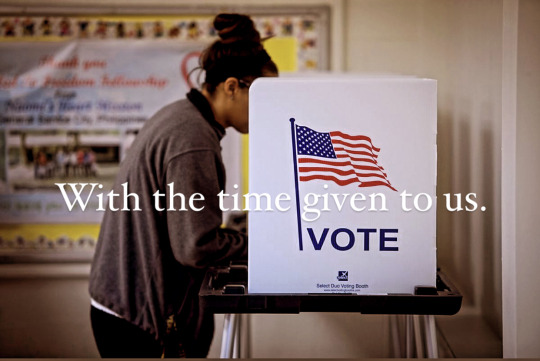
“There are other forces at work in this world besides the will of evil.”
127K notes
·
View notes
Text
It’s odd. Being back.
Second day now. First one was all anxiety. Heart racing. Sweaty. Could not breathe properly. Could not focus. Adrenaline overload. Second day now is still bad. Slightly better. Not sure if this was wise, but we’ll see. But oh wow I am not even nearly back to normal. Not even the taping over the cracks normal of the last year.
What is wonderful though is seeing so many people I care about still being alive. Still posting. Still living their lives. One less thing to worry about.
25 notes
·
View notes
Text
So I’m going to be bitter and old here for a minute.
The absolute refusal to allow anyone to use queer as an umbrella is both novel and regressive (I know, I know). For decades, queer was an accepted and neutral way to concisely refer to a coalition of loosely connected communities and identities. Queer theory, queer film, queer spaces, queer history.
This use came after another few decades of committed work in reclaiming the word from oppressors who flat out stole it from us.
It took a lot of effort to wrestle it back out of their hands, and now I’m expected to just give it over to them because decades of unity and collective action and shared experience don’t matter because a handful of (usually white, almost exclusively american) kids on this godawful website have deicded it’s illegal for me to “force it on others” and that I should instead just let them for LGBT or gay or whatever else on me.
Like, fuck off?
Fuck off.
I am going to refer to my community in the way that I have been doing for an entire lifetime. Not just my specific identity, which is queer as fuck, but the whole fucking shebang.
And I will not hand the word back over to straight people with a nice little ribbon and a coat of polish and say “here, some kids decided it was cool if I let you stab them with this word so here you go” like
Fucking, why would I ever.
Frankly, and I know how people are going to react to this but, frankly?
I damned well will use queer to refer to my community as well as myself, and anyone who wants to take it away from me can take it over my COLD DEAD QUEER LITTLE FINGERS.
I will not sit by and let antsy, nervous kids who don’t know a damn thing about our history talk down to me about how “well, actually” when they can’t even recognize the fact that trans people were still being policed out of here literally three fucking years ago.
The presumption and the ignorance are staggering.
So yeah.
Queer as in fuck you people in particular.
And, to my followers who are made uncomfortable by this, well. I will regret losing you on some level, but not enough to stop.
I fully intend to use queer as the umbrella term it has been for my entire life. LGBT never did my intersex, pansexual ass any favours anyway.
My point is, I’m not going to be referring to the “LGBT” community at all, anymore. It’s going to be 100% queer here, in a more conscious and consistent way than it has been before. Because, you see, even people who do use queer as an identity unashamedly have gotten into this pattern of being apologetic or conditional about it, with a constant, overbearing tone that even when we do use queer as a community term with have to hedge it and gentle it because it’s so dangerous.
but it’s fuckign not.
We spent decades pulling the danger out of it.
And ‘m not going to let it sneak back in.
61K notes
·
View notes
Text
People keep searching for ways to argue that JK Rowling has always been a horrible person deep down as a way of explaining her recent behaviour.
But here’s the thing: that’s probably not true at all.
Pretending it is discounts the harsher, scarier truth: that even decent, well-meaning people can be radicalised by dangerous, hateful, predatory groups, and given enough time they can become truly hideous versions of their former selves.
It can happen to me. It can happen to you. It can happen to any of us, given the right mix of circumstances. And over the past few years, we’ve seen it happen to one of the most famous children’s authors of our age.
Nobody is immune.
80K notes
·
View notes
Note
I dont know who the hell the B stands for but god its disgusting that you ship anyone with Dib. Thats a whole ass child, freak. Wanted to follow for the Pokemon content but you're out here shipping whatever the fuck badr is. Dont fucking ship the kids with irkens jesus christ
HUH????? BADR IS MY NAME ITS A NAME IN ARABIC I DON’T EVEN WATCH ZIM DUGDHBCHBVHJVFH WHAT THE HELL ARE YOU ON
0 notes
Text
donate to black trans groups
the following organizations accept donations via Venmo, PayPal or Cashapp:
Homeless Black Trans Women Fund: supports Black Trans women that live in Atlanta and are sex workers and/or homeless
Trans Justice Funding Project: supports grassroots trans justice groups run by and for trans people, focusing on organizing around racism, economic injustice, transmisogyny, ableism, immigration, and incarceration
Trans(forming): membership-based organization led by trans men, intersex, gender non-conforming people of color, to provide resources and all around transitional support
Black Trans Men Inc.: the first national nonprofit social advocacy organization with a specific focus on empowering Black Transgender men by addressing multi-layered issues of injustice faced at the intersections of racial, sexual orientation, and gender identities
Kween Culture: provides programming towards social and cultural empowerment of transgender women of color
Heaux History Project: a documentary series and archival project exploring Black and Brown erotic labor history and the fight for sex workers’ rights
Tournament Haus Fund: mutual aid fund for protesters and trans/non binary BIPOC in the ballroom scene in Portland/Tacoma/Seattle
Black Excellence Collective Transport for Black NYC LGBTQ+ Protesters: raising funds to provide safe transport for Black LGBTQ+ protesters (NYC)
F2L Relief Fund: provides commissary support (and legal representation & financial assistance) for incarcerated LGBTQ+ and Two-Spirit POC in NY state
Trans Sistas of Color Project Detroit: uplifts, impacts and influences the lives and welfare of transgender women of color in Detroit
Black Trans Protesters Emergency Fund organized by Black Trans Femme in the Arts Collective: supports Black trans protesters with resources like bail and medical care
Black Trans Travel Fund: a mutual aid project developed to provide Black transgender women with the financial resources to self-determine safer alternatives to travel, so they feel less likely to experience verbal harassment or physical harm
Reproductive Justice Access Collective (ReJAC): a New Orleans network that aims to share information, resources, ideas, and human power to create and implement projects in the community that operate within the reproductive justice framework
the following organizations can be donated to individually or all-together via this split donation form that will split your donation amount to equal parts:
Okra Project/Tony McDade and Nina Pop Mental Health Fund: provides Black Trans people with quality mental health & therapy and addresses food security in Black trans communities
For The Gworls: provides assistance to Black trans folks with travel to and from medical facilities, and co-pay assistance for prescriptions and (virtual) office visits
Third Wave Fund: an activist fund led by and for women of color, intersex, queer, and trans people under 35 years of age to resource the political power, well-being, and self determination of communities of color and low-income communities; rapid response grantmaking, multi-year unrestricted grants, and the Sex Worker Giving Circle
Unique Womens Coalition (Los Angeles, CA): supportive organization for and by transgender people of color, committed to fostering the next generation of black trans leadership through mentorship, scholarship, and community care engagement work
Black Trans Women Inc.: a national nonprofit organization committed to providing the trans-feminine community with programs and resources
SisTers/Brothers PGH (Pittsburgh, PA): A transgender drop-in space, resource provider and shelter transitioning program
Love Me Unlimited for Life: helps transgender community members reach their goals and fulfill their potential through advocacy and outreach activities
My Sistah’s House Memphis (Memphis, TN): designed to bring about social change within the Trans Community in Memphis by providing a safe meeting space and living spaces for those who are most vulnerable in the LGBTQ+ community
Black LGBTQIA Migrant Project: builds and centers the power of Black LGBTQIA+ migrants through community-building, political education, direct services, and organizing across borders; provides cash assistance to Black LGBTQ+ migrants and first generation people dealing with the impact of COVID-19
Taja’s Coalition at St. James Infirmary (San Francisco/Bay Area): navigating housing, medical services, legal services, and the workplace, as well as regularly training agencies
Marsha P. Johnson Institute: helps employ black trans people, build more strategic campaigns, launch winning initiatives, and interrupt the people who are standing in the way of more being possible in the world for black Trans people
Black & Pink Bail Fund: national prison abolitionist organization dedicated to dismantling the criminal punishment system and the harms caused to LGBTQ+ people and people living with HIV/AIDS who are affected by the system
Black Visions Collective (MN): healing and transformative justice principles and develops Minnesota’s emerging Black leadership, creating the conditions for long term success and transformation
Middle Tennessee Black and Indigenous Support Fund (Middle, TN): a community fund for Black and Indigenous queer and trans folks to foster wealth redistribution in its larger community, direct the funds to Black and Indigenous community members, and build the leadership of Black and Indigenous community members
SNaPCo (Atlanta, GA): a Black, trans-led collaborative to restore an Atlanta where every person has the opportunity to grow and thrive without facing unfair barriers, especially from the criminal legal system
Brave Space Alliance (Chicago, IL): created to fill a gap in the organizing of and services to trans and gender-nonconforming people on the South and West Sides of Chicago
House of GG: a nonprofit, founded trans activist Miss Major Griffin-Gracy, that is raising money to build a permanent home for Transgender people and be part of a growing network of Southern trans people who are working for social justice
TGI Justice Project: a group of transgender, gender variant and intersex people inside and outside of prisons, jails and detention centers challenging and ending human rights abuses committed against TGI people in California prisons, jails, detention centers
Trans Women of Color Collective: creates revolutionary change by uplifting the narratives, leadership, and lived experience of trans people of color
Youth Breakout (New Orleans, LA): seeks to end the criminalization LGBTQ youth to build a safer and more just New Orleans, organizing with youth ages 13-25 who are directly impacted by the criminal justice system
Translash: a trans-led project uses the power of individual stories to help save trans lives, shifting the cultural understanding of what it means to be transgender, especially during a time of social backlash, to foster inclusion and decrease anti-trans hostility
TRANScending Barriers: empowers the transgender and gender non-conforming community in Georgia through community organizing with leadership building, advocacy, and direct services
My Sistah’s House: a trans-led nonprofit providing first hand experience and field research to create a one-stop shop for finding doctors, social groups and safe spaces for the trans community, providing emergency shelter, access to sexual health services, and social services
TAKE Birmingham: focuses on discrimination in the workplace, housing advocacy, support for sex workers, providing trans-friendly services, and working to alleviate the many other barriers that TWOC face
Dem Bois: provides charitable economical aid for female to male, FTM, trans-masculine identified person(s) of color ages 21 years old and older for them to obtain chest reconstruction surgery, and or genital reassignment surgery
G.L.I.T.S: approaches the health and rights crises faced by transgender sex workers
Emergency Release Fund (NYC): aims to ensure that no trans person at risk in New York City jails remains in detention before trial; pays cash bails
HEARD: Helping Educate to Advance the Rights of Deaf Communities: supports deaf, hard of hearing, deafblind, deafdisabled, and disabled people at every stage of the criminal legal system process, up to and including during and after incarceration
Black Trans Advocacy Coalition COVID-19 Community Response Grant: works daily to end discrimination and inequities faced in health, employment, housing and education to improve the lived experience of transgender people
Princess Janae Place: provides referrals to housing for chronically homeless LGBTQ adults in the New York Tri-state area, with direct emphasis on Trans/GNC people of color
The Transgender District: aims to stabilize and economically empower the transgender community through ownership of homes, businesses, historic and cultural sites, and safe community spaces
Assata’s Daughters (Chicago, IL): Black woman-led; organizes young Black people in Chicago by providing them with political education, leadership development, mentorship, and revolutionary services
Collective Action for Safe Spaces: A grassroots organization that uses comprehensive, community-based solutions through an intersectional lens to eliminate public gendered harassment and assault in the DC area.
The Knights and Orchids Society (TKO) work for justice and equality through group economics, education, leadership development, and organizing cultural work throughout rural areas in Alabama
The Outlaw Project (Phoenix, AZ): prioritizes the leadership of people of color, transgender women, gender non-binary and migrants for sex worker rights
WeCare TN (Memphis, TN): Supports trans women of color
Community Ele'te (Richmond, VA): provides safe sex awareness and education, linkage to resources, emergency housing assistance
TAJA’s Coalition (San Francisco, CA): ending violence against Black Trans women and Trans women of color
Black Trans Task Force: intersectional, multi-generational project of community building, research, and political action addressing the crisis of violence against Black Trans people in the Seattle-Tacoma area
The Transgender District: stabilize and economically empower the transgender community through ownership of homes, businesses, historic and cultural sites, and safe community spaces
Black Trans Media (Brooklyn, NY): #blacktranseverything storytellers, organizers, poets, healers, filmmakers, facilitators that confront racism and transphobia
Garden of Peace, Inc. (Pittsburgh, PA): for black trans & queer youth, elevates and empowers the narratives and lived experiences of black youth and their caretakers, guides revolutionary spaces of healing and truth through art, education, and mentorship
House of Pentacles (Durham, NC): Film Training Program and Production House designed to launch Black trans youth into the film industry and tell stories woven at the intersection of being Black and Trans
Minnesota Transgender Health Coalition (Minneapolis, MN): committed to improving health care access and the quality of health care received by trans and gender non-conforming people through education, resources, and advocacy
RARE Productions (Minneapolis, MN): arts and entertainment media production company for LGBTQ people of color that promotes, produces, and co-creates opportunities and events utilizing innovative artistic methods and strategies
Baltimore Safe Haven (Baltimore, MD): providing opportunities for a higher quality of life for transgender people in Baltimore
Transgender Emergency Fund of Massachusetts: recently helped organize a Trans Resistance Vigil and March through Boston, in place of the Boston Pride Parade that was cancelled due to COVID-19
Semillas: in Puerto Rico, the trans, gender non-conforming and queer communities are facing many obstacles to survival
Street Youth Rise Up: change the way Chicago sees and treats its homeless and street based youth who do what they have to do to survive
82K notes
·
View notes
Text
“When I was 26, I went to Indonesia and the Philippines to do research for my first book, No Logo. I had a simple goal: to meet the workers making the clothes and electronics that my friends and I purchased. And I did. I spent evenings on concrete floors in squalid dorm rooms where teenage girls—sweet and giggly—spent their scarce nonworking hours. Eight or even 10 to a room. They told me stories about not being able to leave their machines to pee. About bosses who hit. About not having enough money to buy dried fish to go with their rice.
They knew they were being badly exploited—that the garments they were making were being sold for more than they would make in a month. One 17-year-old said to me: “We make computers, but we don’t know how to use them.”
So one thing I found slightly jarring was that some of these same workers wore clothing festooned with knockoff trademarks of the very multinationals that were responsible for these conditions: Disney characters or Nike check marks. At one point, I asked a local labor organizer about this. Wasn’t it strange—a contradiction?
It took a very long time for him to understand the question. When he finally did, he looked at me like I was nuts. You see, for him and his colleagues, individual consumption wasn’t considered to be in the realm of politics at all. Power rested not in what you did as one person, but what you did as many people, as one part of a large, organized, and focused movement. For him, this meant organizing workers to go on strike for better conditions, and eventually it meant winning the right to unionize. What you ate for lunch or happened to be wearing was of absolutely no concern whatsoever.
This was striking to me, because it was the mirror opposite of my culture back home in Canada. Where I came from, you expressed your political beliefs—firstly and very often lastly—through personal lifestyle choices. By loudly proclaiming your vegetarianism. By shopping fair trade and local and boycotting big, evil brands.
These very different understandings of social change came up again and again a couple of years later, once my book came out. I would give talks about the need for international protections for the right to unionize. About the need to change our global trading system so it didn’t encourage a race to the bottom. And yet at the end of those talks, the first question from the audience was: “What kind of sneakers are OK to buy?” “What brands are ethical?” “Where do you buy your clothes?” “What can I do, as an individual, to change the world?”
Fifteen years after I published No Logo, I still find myself facing very similar questions. These days, I give talks about how the same economic model that superpowered multinationals to seek out cheap labor in Indonesia and China also supercharged global greenhouse-gas emissions. And, invariably, the hand goes up: “Tell me what I can do as an individual.” Or maybe “as a business owner.”
The hard truth is that the answer to the question “What can I, as an individual, do to stop climate change?” is: nothing. You can’t do anything. In fact, the very idea that we—as atomized individuals, even lots of atomized individuals—could play a significant part in stabilizing the planet’s climate system, or changing the global economy, is objectively nuts. We can only meet this tremendous challenge together. As part of a massive and organized global movement.
The irony is that people with relatively little power tend to understand this far better than those with a great deal more power. The workers I met in Indonesia and the Philippines knew all too well that governments and corporations did not value their voice or even their lives as individuals. And because of this, they were driven to act not only together, but to act on a rather large political canvas. To try to change the policies in factories that employ thousands of workers, or in export zones that employ tens of thousands. Or the labor laws in an entire country of millions. Their sense of individual powerlessness pushed them to be politically ambitious, to demand structural changes.
In contrast, here in wealthy countries, we are told how powerful we are as individuals all the time. As consumers. Even individual activists. And the result is that, despite our power and privilege, we often end up acting on canvases that are unnecessarily small—the canvas of our own lifestyle, or maybe our neighborhood or town. Meanwhile, we abandon the structural changes—the policy and legal work— to others.”
- Naomi Klein
188K notes
·
View notes
Text
Tumblr: *rolls out “best stuff first”*
My blog:
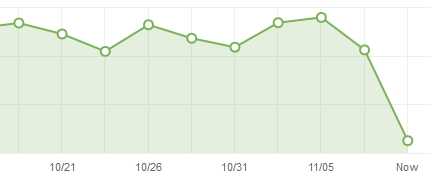
285K notes
·
View notes
Text
Advice and a Pep-Talk from one Autistic Writer to Another
I’ve seen enough “how to write autistic characters” directed at allistics but I’m not sure I’ve really seen any posts directed at autistics written by other autistics that’s just general writing advice. So here’s some tips and tricks and a pep talk.
1. Write as many autistic characters as you want. It’s totally ok for every single one of your characters to be autistic. If other people can write stories without any autistic characters, you can write ones without any allistic characters. (After all, how can you write an autistic allistic character if you’re not autistic allistic. /s)
2. Let your characters stim! It’s a great way to include body language in a way that feels natural for us.
On the topic of stimming, try and vary the stims your characters use. This is something I generally take care of in editing. Everyone would run their hands through their hair, but when they did that, it just became a filler description, so I cut the action from most of the characters and left it for a few. At that point, the stim became theirs. (I also then got to have lines like “Den ran his hand through his hair to calm his thoughts, a motion more like his brother than him.” which is like Look, characterization!)
3. Body language and facial expressions are hard. I can’t tell you how many times I’ve described the body language or facial expression without actually saying what the character was feeling while writing, and then in editing have no idea what they were feeling.
It’s totally OK to write something like “their eyebrows jumped up in surprise as their jaw dropped towards the floor.” It’s descriptive enough to follow the “show, don’t tell” rule, but still names the emotion the character is feeling. It also lets you use non-standard body language (aka autistic body language and stimming) in a way that allistic readers can pick up on.
Reference sheets are a great way to have some standard allistic ways of expressing emotions via body language. This is a great way to make sure that if a character is expressing an emotion but it’s not something you can state in the story (or that your character is unaware of), that it’ll still be something your audience can pick up on.
4. It can take a while to really get a feel for your characters. I tend to only really have their characterization solid enough to keep them consistent after I’ve written the initial rough draft. This is one of the reasons my first step after completing my initial draft is to rewrite everything. It’s just the easiest way I’ve found to make sure all the characters are in character - because if I tried to go through every single line and figure out what wasn’t in character, I’d be lost.
If you’re confused about why a character is doing something because you forgot what you were thinking and are having trouble figuring it out from context, it’s ok to take that bit out and rewrite it. Sometimes it might be because a character is acting out of character, and in that case it’s a good thing you’re fixing it.
5. The details you include in your writing because you’re so detail oriented really makes the story come alive. I can’t tell you how many times I’ve gotten told it feels like my world exists beyond the story and that my characters have lives beyond what’s mentioned on the page because I think about every little detail and make mentions of them.
Our attention to detail also tends to let us do unintentional symbolism and foreshadowing really well. We try and make every little thing relevant and tied into everything else, which is something that comes naturally to us and I’ve seen so many writers struggle with.
6. Infodump in the rough draft as much as you want. If it keeps you writing, go for it.
You can remove (or better integrate) infodumps (because they tend to not be all that interesting to readers since they stop the story in their tracks) and any inconsistent details when you edit.
If you want to avoid just infodumping in the story itself, write down EVERYTHING about your characters, your world, your plot, everything you want to explain and anything that is relevant to know for the story in a separate document(s). For me, it gets the urge to explain EVERYTHING out of my system and helps me include only what’s needed when I’m writing. (Plus it makes a GREAT reference material for when you’re writing.)
7. If you don’t explain something well enough, that can also be fixed in editing. This is where beta readers are useful since they can let you know where they’re confused and where more information is useful. This is also where taking a break between writing and editing can help, since if you’re confused it’s likely a spot where you need to include more information
(Again, this is advice for autistic writers from an autistic writer. Allistics and Writing blogs are encouraged to reblog this since this is writing advice, but unless you are autistic, please do not comment.)
914 notes
·
View notes
